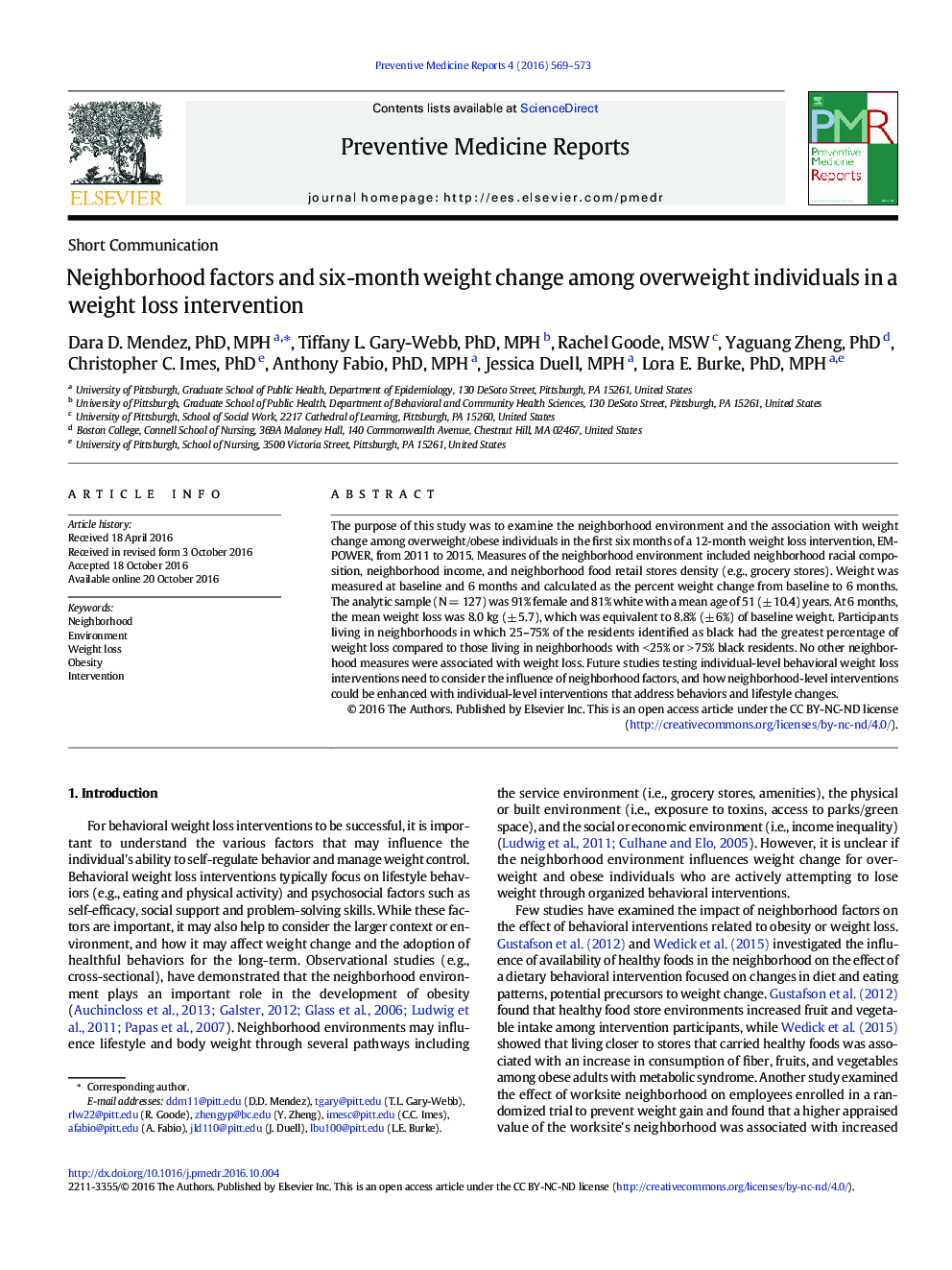| Article ID | Journal | Published Year | Pages | File Type |
|---|---|---|---|---|
| 8818742 | Preventive Medicine Reports | 2016 | 5 Pages |
Abstract
The purpose of this study was to examine the neighborhood environment and the association with weight change among overweight/obese individuals in the first six months of a 12-month weight loss intervention, EMPOWER, from 2011 to 2015. Measures of the neighborhood environment included neighborhood racial composition, neighborhood income, and neighborhood food retail stores density (e.g., grocery stores). Weight was measured at baseline and 6 months and calculated as the percent weight change from baseline to 6 months. The analytic sample (N = 127) was 91% female and 81% white with a mean age of 51 (± 10.4) years. At 6 months, the mean weight loss was 8.0 kg (± 5.7), which was equivalent to 8.8% (± 6%) of baseline weight. Participants living in neighborhoods in which 25-75% of the residents identified as black had the greatest percentage of weight loss compared to those living in neighborhoods with < 25% or > 75% black residents. No other neighborhood measures were associated with weight loss. Future studies testing individual-level behavioral weight loss interventions need to consider the influence of neighborhood factors, and how neighborhood-level interventions could be enhanced with individual-level interventions that address behaviors and lifestyle changes.
Related Topics
Health Sciences
Medicine and Dentistry
Public Health and Health Policy
Authors
Dara D. PhD, MPH, Tiffany L. PhD, MPH, Rachel MSW, Yaguang PhD, Christopher C. PhD, Anthony PhD, MPH, Jessica MPH, Lora E. PhD, MPH,
